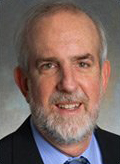Sleep and Parasomnias

The term “parasomnia” refers to all the abnormal things that can happen to people while they sleep, apart from sleep apnea. Some examples are sleep-related eating disorder, sleepwalking, nightmares, sleep paralysis, REM sleep behavior disorder, and sleep aggression. Sexsomnia, sometimes called “sleepsex,” is also a parasomnia. It refers to sexual acts that are carried out by a person who is sleeping. Parasomnias can have negative effects on people during the daytime, including sleepiness.
When do parasomnias occur?
Parasomnias can occur as a person is falling asleep or at any point in the sleep cycle. If they occur while falling asleep, a person may experience disturbing hallucinations or sleep paralysis, which is when the body is unable to move for seconds or minutes. Sleep paralysis can be quite frightening, especially when it occurs with hallucinations.
Parasomnias that occur during sleep, such as REM sleep behavior disorder (RBD), often involve vigorous and harmful dream-enacting behaviors. RBD is a brain disorder that usually occurs in men over 50 years of age, but can affect people of any age who are taking certain medications, such as antidepressants, and people with neurologic disorders, such as Parkinson's disease, narcolepsy or stroke. Other parasomnias that occur during sleep include nightmares and sleep-related groaning, which can be loud and prevent a person's bed partner or roommate from sleeping.
In addition, there are parasomnias that occur when a person has abrupt, partial awakenings, such as confusional arousals, sleepwalking, sleep terrors, and sleep-related eating disorder.
Sleep-related hallucinations may also occur as a person is waking up.
What causes a parasomnia?
Parasomnias often run in families and so there is probably a genetic factor in many cases. Brain disorders may be responsible for some parasomnias, such as many cases of REM sleep behavior disorder. Parasomnias may also be triggered by other sleep disorders such as obstructive sleep apnea, and by various medications.
Who is at risk for parasomnias?
Parasomnias affect approximately 10% of Americans. They occur in people of all ages, but are more common in children. Children are particularly vulnerable because of brain immaturity. The good news is that they are usually not associated with negative health consequences and disappear as a child matures.
Should a person be awakened during a parasomnia episode
Trying to awaken a “parasomniac in action” - especially by shaking or shouting - can sometimes trigger an irritable, aggressive or violent response. Therefore, gently redirect the person back to bed by guiding him or her by the elbow and speaking softly.
How can a parasomnia sufferer be protected?
Door alarms can help by awakening a person during an episode. Also, a person who suffers from parasomnias should not sleep on a top bunk, or next to a window. It is important to remove sharp objects from the bedside area and to be sure roommates and household members are aware of the problem and what to do about it.
How are parasomnias treated and at what point should someone with a parasomnia seek evaluation and possible treatment?
Many people who suffer with parasomnias see an improvement in their symptoms simply by improving their sleep habits. Good sleep habits include keeping a regular sleep schedule, managing stress, having a relaxing bedtime routine, and getting enough sleep. There are also drug therapies that are used to control symptoms.
A person should seek treatment whenever there is risk for injury to oneself or another person from the parasomnia. It is also important to seek treatment if the parasomnia disrupts a person's own sleep or the sleep of the bed partner or roommate, of if there is distress about the symptoms (e.g., nightmares), or if the frequency is quite high or escalating. An overnight sleep lab study may be needed.
It is important to keep in mind that no matter how weird, bizarre, or violent the behavior, a parasomnia is rarely linked with a psychiatric disorder. However, people who suffer from parasomnias may endure ridicule, confusion, and/or shame about their symptoms. In addition, bed partners, family members, and roommates may suffer sleep loss as a result of the parasomnia. In many cases, seeking help from a therapist or support group can help people with parasomnias and the people close to them cope with these issues.
Carlos H. Schenck, M.D. practices sleep medicine at the Minnesota Regional Sleep Disorders Center, Hennepin County Medical Center and University of Minnesota Medical School. He is the author of the recently released book Sleep: The Mysteries, The Problems and The Solutions. This books covers all the parasomnias, including patient stories and vignettes, and also all the other categories of sleep disorders, including insomnia, sleep apnea, restless legs, hypersomnias and circadian rhythm disorders.
Dr. Schenck has produced and participated in a 1 hour documentary film called Sleep Runners: The Stories Behind Everyday Parasomnias. Visit www.sleeprunners.com to view a 5 minute trailer of the film and to obtain more information about the DVD.
Learn more about how these medical devices can make a big difference in nighttime comfort for people with breathing issues.Sleep Apnea is a sleep disorder in which breathing is briefly and repeatedly interrupted during sleep. Learn how to cope with this sleep-related breathing disorder.A frequent need to get up and go to the bathroom to urinate at night is called nocturia. It differs...Nearly one-quarter of all workers have shifts that are not during the daytime, and more than two-thirds of these workers...Explore how today's modern family sets rules for sleep, navigates the use of technology in the bedroom, how parents can...You don't have to struggle with sleepless nights. Help is available! There are treatment options for insomnia, ranging from behavioral...How you feel about the sleep you get every night is known as sleep satisfaction. Unlike sleep quantity (which objectively...A peaceful night of slumber can leave you feeling more energized and alert when you wake up. But sleep quality...It’s important to strive for the recommended seven to nine hours of sleep each night, but counting how much sleep...For many parents, the word “tired” takes on new meaning during the first few weeks after bringing a baby home....

Source: Internet





